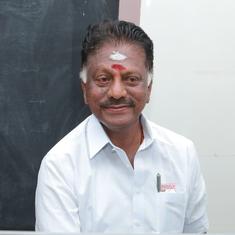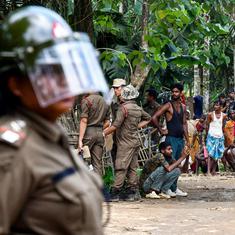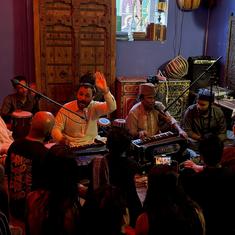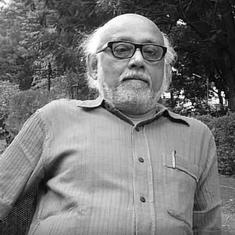Slated to be addressed by Modi, the rally will formally kick off the party’s campaign in the state, where elections are due in October this year.
According to BJP insiders, while the Bihar party unit is working tirelessly to make the July 25 show a grand event, a section of the central leadership is awaiting the results. This section feels that in the absence of “adequate response” at Muzaffarpur, the party must not take the risk of letting the polls be seen as a referendum on Modi’s performance. It argues that if enough people don’t turn up at the event, the party should declare a chief ministerial candidate to insulate Modi from any possible debacle.
Repeat of Delhi strategy
Although a definite game plan is still being formulated, it is reminiscent of the strategy the BJP adopted in the midst of the Delhi assembly election campaign earlier this year. Initially, the party’s position was clear – there will be no chief ministerial candidate, and the Modi card will be used just as it was in Maharashtra, Haryana, Jharkhand and Jammu and Kashmir.
However, after the first rally the prime minister addressed in January turned out to be a dud, the BJP changed tack and announced Kiran Bedi as the chief ministerial candidate.
Something similar may play out in Bihar. Until recently, the issue of leadership in the state had seemed settled, with the BJP brass nearly decided on not projecting a chief ministerial candidate and to go to election under Modi’s leadership. This, it believed, would put the party above the wrangles of local factions and keep the state’s caste-divided electorate in suspense, leaving each with the hope that a member of its community may get propped up after the election.
Chief ministerial race
Now, with the leadership question getting rekindled, the dormant chief ministerial ambitions of several state leaders representing different caste groups have come alive again. Former Deputy Chief Minister Sushil Kumar Modi, a member of Other Backward Classes who likes to be called “SuMo”, tops the list of aspirants. Many veterans of state BJP – including leader of opposition in the assembly Nand Kishore Yadav, and former Union minister and party’s prominent Bhumihar face CP Thakur – feel the party should give them a chance at the leadership.
A new entrant to this list is Union minister Giriraj Singh, another Bhumihar leader who recently commented: “An upper caste cannot become Chief Minister of Bihar.” Though he made the remark sound like a factual statement, political observers consider it a reflection of a deep-rooted tussle for leadership between upper castes and OBCs just when the campaign is about to gain momentum in the state.










